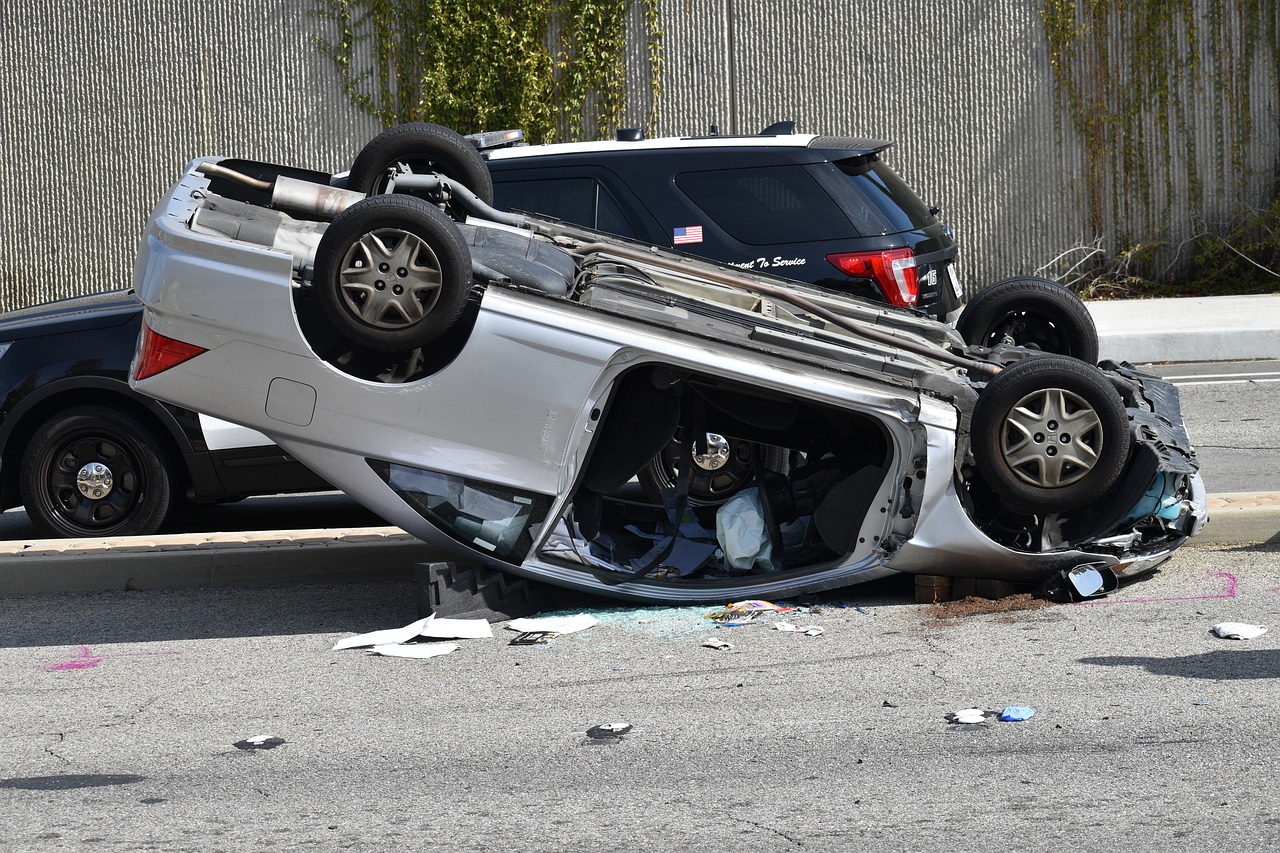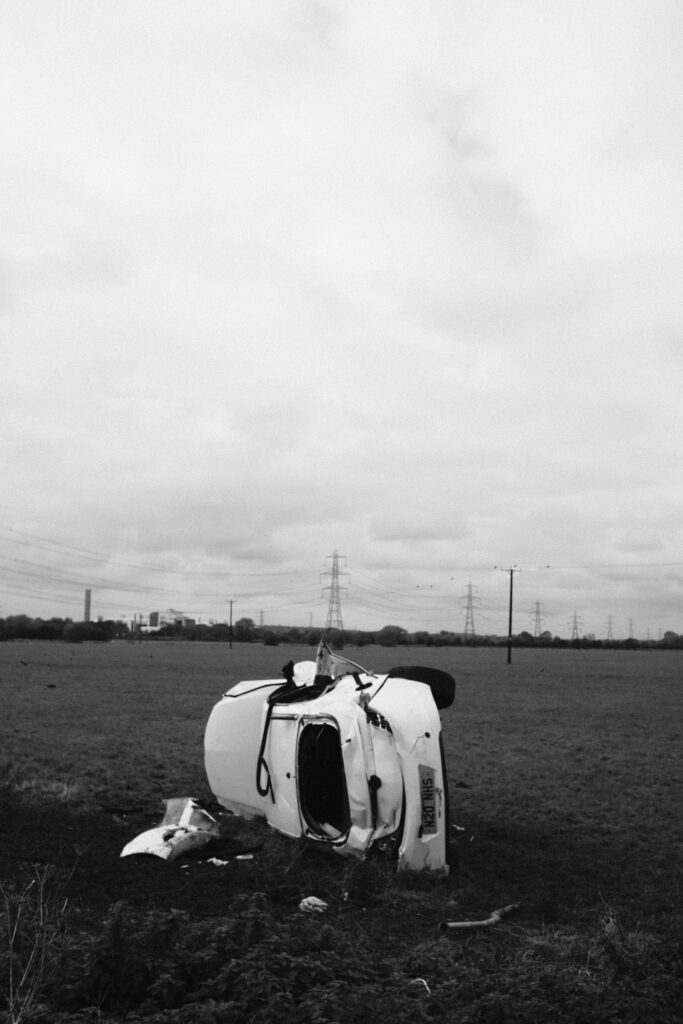These days, car accidents are all too common in Pennsylvania and across the country. Unfortunately, they can cause significant damage to vehicles. In some cases, the damage can be so severe that the car is considered totaled.
But when exactly is a car considered totaled in Pennsylvania?
In this post, the Philadelphia car accident attorneys from The Thistle Law Firm explore the factors determining whether or not a car is considered totaled in Pennsylvania and what options you have if your insurance company considers your vehicle a total loss.
What is Considered a Totaled Car?
A car is considered totaled in Pennsylvania if its repair cost exceeds its actual cash value (ACV). The ACV is the car’s value before the accident, considering its age, condition, and mileage.
If the cost of repairs exceeds the ACV, the car is deemed a total loss.
How to Determine the Value of Your Car
Pennsylvania law requires insurance companies to determine the ACV of a car using a recognized pricing guide, such as the Kelley Blue Book or the National Automobile Dealers Association (NADA) guide. If the insurance company determines that the cost of repairs exceeds the ACV, they will typically declare the car a total loss and offer you a settlement based on the car’s ACV.
Additionally, if you have made significant upgrades or modifications to your car, such as adding custom wheels or a high-end sound system, the insurance company may not consider these when determining the ACV. In such cases, you can provide documentation of the upgrades to the insurance company to support a higher valuation. Hiring an experienced car accident attorney can help navigate the valuation process and ensure you receive fair compensation for your damages.
It’s important to note that the insurance company’s determination of the car’s ACV may not always reflect its actual value. As a result, in some cases, the insurance company may undervalue the car, leaving you with a lower settlement than you deserve.
If you believe that the insurance company’s valuation of your vehicle is too low, you have the right to dispute it. Hiring a PA car accident attorney can be helpful in this insurance lowball situation.
Factors Contributing to a “Total Loss” Determination
In addition to the cost of repairs versus the ACV, other factors can contribute to a car being considered totaled in Pennsylvania. These factors include the following:
- Severe structural damage: If the car’s frame is bent or twisted, it may be unsafe to repair.
- Airbag deployment: If the airbags in the car are deployed, it can indicate that the damage is significant enough to deem the vehicle a total loss.
- Electrical damage: If the car’s electrical system is damaged, it can be costly to repair and may render the vehicle unsafe to drive.
- Water damage: If the car has been submerged in water, it may be considered a total loss due to the potential for extensive damage to the engine and other critical components.
Options for Dealing with a Totaled Car in PA
You have a few options if your car is deemed a total loss.
You can accept the insurance company’s settlement offer and relinquish the car to them, or you can negotiate a higher settlement if you believe the offer is too low. You may also be able to keep the vehicle and have it repaired, although you will need to obtain a salvage title.
If you decide to keep the car and have it repaired, you should be aware that it may be more difficult to obtain insurance coverage for the vehicle in the future. Insurance companies often hesitate to provide coverage for vehicles with salvage titles, as they are considered higher risk.
In addition to insurance considerations, you should also be aware that repairing a totaled car can be expensive and may not be worth the investment. Sometimes, accepting the insurance settlement for the car accident compensation and purchasing a new vehicle may be a more cost-effective option.
Hiring a Philidelphia Accident Attorney
If you have been involved in a car accident in Pennsylvania and your car has been deemed a total loss, it’s important that you understand your rights and options. You have the right to dispute the insurance company’s valuation of your car and negotiate a higher settlement if you believe the offer is too low. You also have the option to keep and repair the vehicle, although you should be aware of the potential insurance and financial implications of doing so.
A Pennsylvania car accident attorney can help you determine which option is right for you.
Pennsylvania law requires insurance companies to provide a written explanation of how they determined the ACV of your car. If you believe the insurance company’s vehicle valuation is too low, you can request a copy of this explanation and use it to dispute the valuation. Additionally, you can obtain your independent appraisal of the car’s value to support your argument.
If you decide to accept the insurance settlement, it’s essential to review the settlement offer carefully and make sure that it includes compensation for all of your damages, including medical expenses, lost wages, and pain and suffering. If the settlement offer is inadequate, you can negotiate a higher settlement with the insurance company or file a lawsuit against the at-fault driver.
It’s important to weigh the costs and benefits of all your options before deciding on how to move forward. If you need assistance with your car accident claim, it’s recommended to consult with an experienced car accident attorney who can provide guidance and help protect your rights.
If you or a loved one has been in a Pennsylvania car accident, you shouldn’t deal with the insurance companies alone. Instead, you’ll want to hire a PA car accident firm with experience in insurance claims and accidents involving totaled vehicles.
The experienced accident attorneys at Thistle Law are here to help. Call us at 215-525-6824 for a free consolation on your case. We understand the emotional, physical, and financial damage a car accident can cause and are always ready to help our clients get the compensation they deserve.



